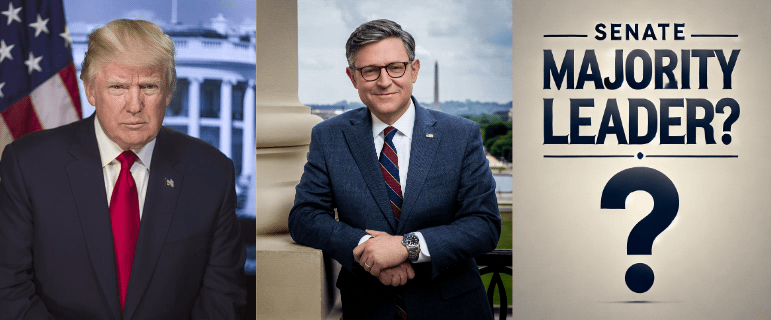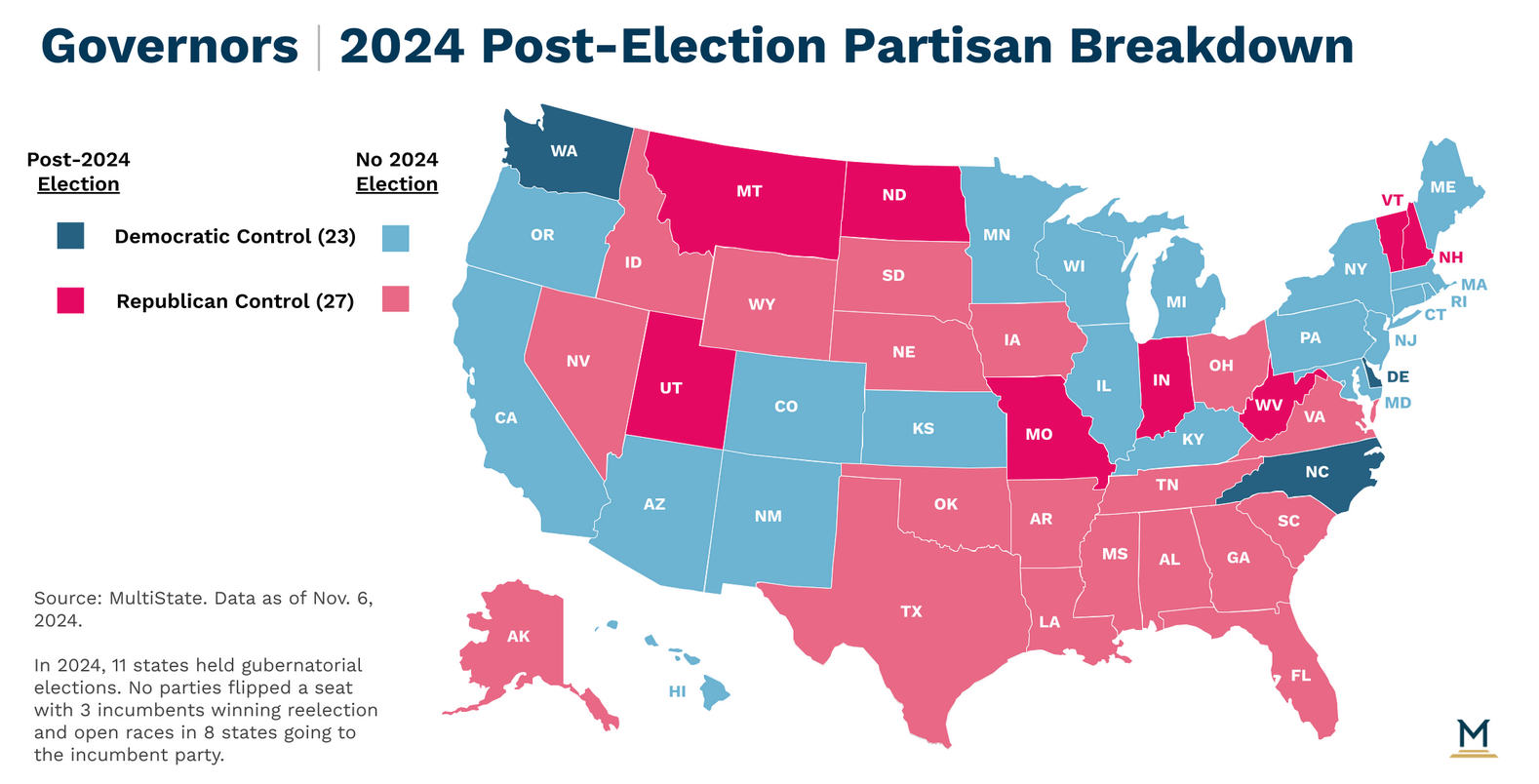How Far Will They Go?
This is the relative calm before the storm.

Having secured control of the Executive branch and Congress, and with a largely friendly Supreme Court in place, there is seemingly little to stop Trump from executing his authoritarian, populist agenda in 2025...except our existing constitutional structure itself, and you and me.
As a host of others are already engaged in the election post-mortem business, I'm going to focus this edition of The Sentinel on the consequences, as well as the means still available to slow or even derail Trump's most odious stated plans.
As the map from Multistate below shows, nearly half of the governorships in this country are in Democratic hands going into 2025.

The practical effect of this is that in those states with Democratic party governors, those governors control both their own National Guard and state police assets. Any attempt by Trump to try to federalize their National Guard units for illegal immigrant round ups or counter-protester operations will be vigorously resisted, especially in California and likely elsewhere. However, local police departments are another matter entirely.
Under the federal 287(g) program, a number of state and local law enforcement organizations already act as deputized federal immigration enforcement agents. Texas and Florida--two Trump strongholds--have the most of these agreements, while California has effectively opted out of the program and New Mexico has none. The program has been controversial and heavily criticized for decades and remains a major political flashpoint in the immigration debate. It will be interesting to see how many Democratically controlled states currently participating in the 287(g) program drop out between now and Trump's first 100 days in office.
And there are other ways anti-Trump governors can gum up the works for Trump and his Justice and Homeland Security departments.
Blocking federalization of their National Guard units, refusing to participate in the 287(g) program, pulling all of their state and local police out of fusion centers and joint terrorism task forces, and ending any state or local law enforcement sharing agreements with the federal government would severely cripple and dramatically slow down, though not completely eliminate, Trump's ability to initiate his mass deportation plan. GOP control of Congress all but ensures that he'll get the money to hire more ICE and CBP agents for the task--but getting those personnel onboard and operationally effective will take time.
The other burning question is to what extent will Trump make good on his threat to go after his political enemies, including but not limited to Democratic Party political figures, "Never Trumper" ex-Republicans, and other Americans who take to the street to protest his policies.
While I'd like to think that Trump would not appoint someone as totally unhinged as Mike Davis to be Attorney General, it would be unwise to rule out such a scenario given Trump's record the first time around.
But as I noted earlier this year in the Julian Assange case, even pre-Trump administrations had no compunction about using existing legal mechanisms to go after de facto political opponents. Assange's "crime" was exposing U.S. war crimes in Iraq via the release of information that had been classified in order to prevent those war crimes from ever becoming public. The subsequent indictment, incarceration, financial and emotional costs of the episode are things Assange will likely never fully recover from.
Thus, bogus criminal charges brought against a Liz Cheney or Adam Kinzinger would still require them to hire and pay lawyers to defend themselves against Trump Justice Department "lawfare" and subject them and their families to the same kind state-sponsored judicial terrorism that Assange experienced.
Cheney and Kinzinger are at least likely able to raise money to pay such lawyer bills. But what about immigrant rights activists charged by a Trump Justice Department with "aiding" illegal immigrants in violating federal immigration laws?
Most people who work at places like the National Immigration Lawyers Association or the American Immigration Council are not rolling in money. The expense and mental and physical stress of having to fend off such legal and political attacks would likely bankrupt such activists even if the charges against them were ultimately thrown out by federal courts. The process would indeed be the punishment for opposing Trump.
And what if another George Floyd-like lethal incident takes place somewhere in America and fresh riots happen?
The last time he was in office, he wanted his Defense Secretary Mark Esper to bring in the 82nd Airborne Division to shoot Black Lives Matter protesters. Esper managed to steer Trump away from giving that order--barely. Trump will ensure that his next Pentagon chief will carry out a shoot-to-kill order against street protesters. Should such a massacre come to pass, it might represent the first shots in a new, genuine American civil war.
Thanks for reading The Sentinel. If you're not currently a subscriber, please consider becoming one as doing so is free through 2024 and it's an easy way to show your support for my work. Also, please share this piece with family, friends, and anyone else you believe would benefit from reading it.





